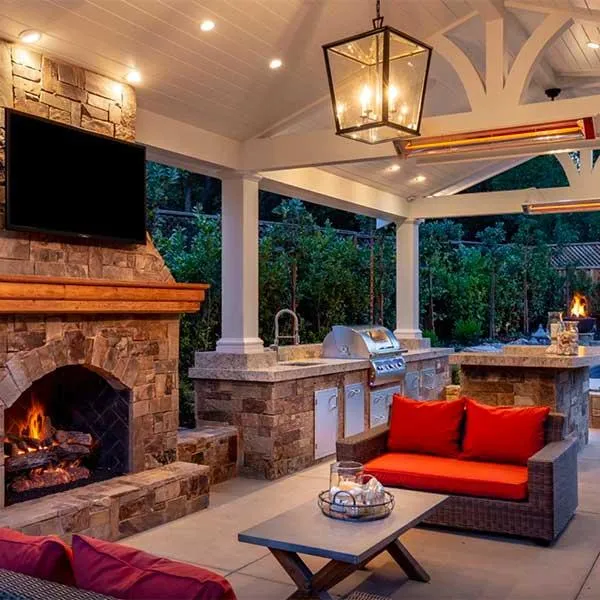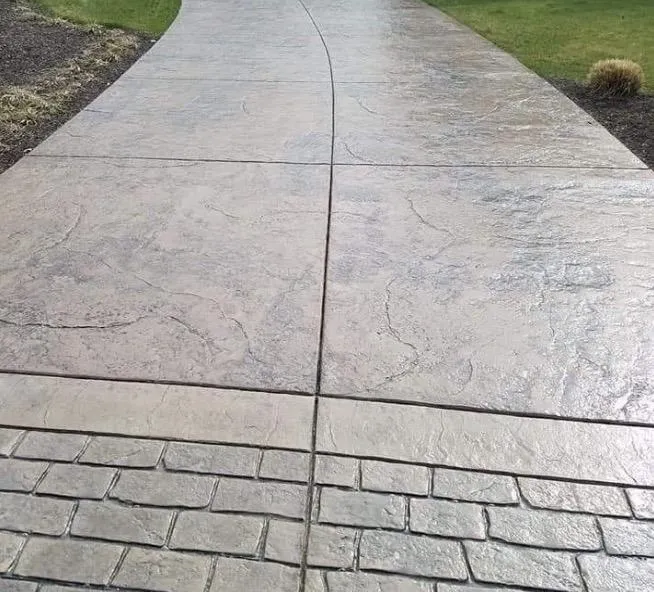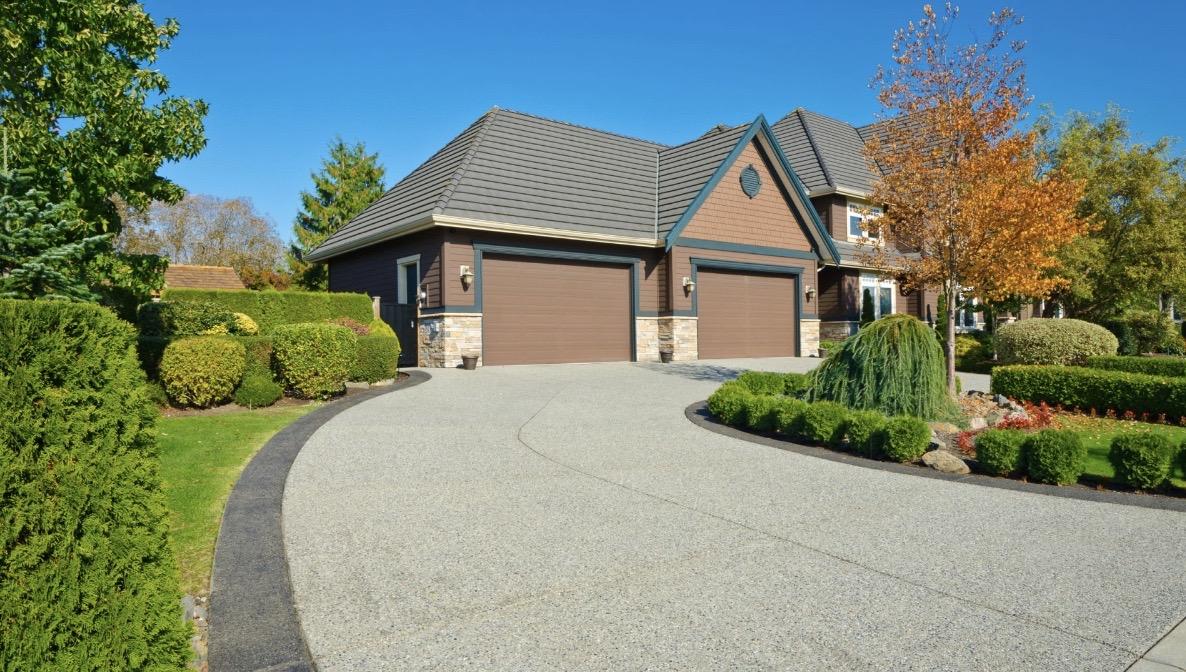Articles > Library

Unveiling the Lifespan of Outdoor Kitchens: Factors Influencing Durability
Unveiling the Lifespan of Outdoor Kitchens: Factors Influencing Durability
Outdoor kitchens have become a popular feature in many homes, offering a convenient and enjoyable way to cook and entertain outdoors. However, one common question that arises among homeowners considering the installation of an outdoor kitchen is: How long do outdoor kitchens last? The answer to this question depends on several factors, including the quality of materials used, the craftsmanship of the installation, and the maintenance practices employed. In this article, we will explore these factors in detail to provide a comprehensive understanding of the lifespan of outdoor kitchens.
1. Quality of Materials
The durability of an outdoor kitchen is heavily influenced by the quality of materials used in its construction. High-quality materials are more resistant to the elements and are less likely to deteriorate over time. When selecting materials for your outdoor kitchen, it is essential to choose options that are specifically designed for outdoor use and can withstand exposure to sun, rain, wind, and temperature fluctuations.
- Countertops: Opt for durable materials such as granite, stainless steel, or concrete for your outdoor kitchen countertops. These materials are resistant to stains, heat, and moisture, making them ideal for outdoor use.
- Cabinetry: Choose cabinets made from weather-resistant materials such as marine-grade stainless steel or outdoor-rated polymer. These materials are designed to withstand exposure to moisture and temperature extremes without warping, rotting, or rusting.
- Flooring: Select flooring materials that are durable, slip-resistant, and easy to clean. Options such as porcelain tile, natural stone, or composite decking are excellent choices for outdoor kitchen flooring.
2. Quality of Workmanship
In addition to the quality of materials, the craftsmanship of the installation plays a significant role in determining the lifespan of an outdoor kitchen. A well-built outdoor kitchen should be structurally sound, properly sealed, and installed according to industry best practices. Poor workmanship can lead to issues such as water intrusion, uneven surfaces, and structural instability, which can shorten the lifespan of the outdoor kitchen.
- Hiring Professionals: It is essential to hire experienced professionals for the design and installation of your outdoor kitchen. Look for contractors with a proven track record of quality workmanship and satisfied customers.
- Following Building Codes: Ensure that your outdoor kitchen is built in compliance with local building codes and regulations. This includes obtaining any necessary permits and inspections to ensure that the installation meets safety and structural requirements.
3. Maintenance Practices
Regular maintenance is crucial for preserving the lifespan of an outdoor kitchen and preventing premature deterioration. Proper care and upkeep can help protect against damage from the elements, prolonging the life of the materials and components used in the outdoor kitchen.
- Cleaning: Regularly clean countertops, cabinets, and appliances to remove dirt, grease, and debris. Use mild soap and water or specialized cleaning products designed for outdoor use.
- Sealing: Seal natural stone countertops and other porous surfaces to protect against stains and moisture penetration. Reapply sealant as needed according to the manufacturer's recommendations.
- Covering: Consider investing in a cover or shelter for your outdoor kitchen to protect it from exposure to harsh weather conditions, such as extreme heat, rain, and snow. This can help prevent fading, warping, and deterioration of materials.
Learn more: https://concreteessentialsco.com/outdoor-kitchen
Conclusion
In conclusion, the lifespan of an outdoor kitchen depends on a combination of factors, including the quality of materials, the craftsmanship of the installation, and the diligence of maintenance practices. With proper planning, construction, and upkeep, an outdoor kitchen can last 10 years or more, providing years of enjoyment and functionality for homeowners. By investing in high-quality materials, hiring experienced professionals, and implementing regular maintenance routines, you can ensure that your outdoor kitchen stands the test of time and remains a valuable asset to your home for years to come.
More Articles


Contact Us
Service Hours
Social Media
Articles > Library

Unveiling the Lifespan of Outdoor Kitchens: Factors Influencing Durability
Unveiling the Lifespan of Outdoor Kitchens: Factors Influencing Durability
Outdoor kitchens have become a popular feature in many homes, offering a convenient and enjoyable way to cook and entertain outdoors. However, one common question that arises among homeowners considering the installation of an outdoor kitchen is: How long do outdoor kitchens last? The answer to this question depends on several factors, including the quality of materials used, the craftsmanship of the installation, and the maintenance practices employed. In this article, we will explore these factors in detail to provide a comprehensive understanding of the lifespan of outdoor kitchens.
1. Quality of Materials
The durability of an outdoor kitchen is heavily influenced by the quality of materials used in its construction. High-quality materials are more resistant to the elements and are less likely to deteriorate over time. When selecting materials for your outdoor kitchen, it is essential to choose options that are specifically designed for outdoor use and can withstand exposure to sun, rain, wind, and temperature fluctuations.
- Countertops: Opt for durable materials such as granite, stainless steel, or concrete for your outdoor kitchen countertops. These materials are resistant to stains, heat, and moisture, making them ideal for outdoor use.
- Cabinetry: Choose cabinets made from weather-resistant materials such as marine-grade stainless steel or outdoor-rated polymer. These materials are designed to withstand exposure to moisture and temperature extremes without warping, rotting, or rusting.
- Flooring: Select flooring materials that are durable, slip-resistant, and easy to clean. Options such as porcelain tile, natural stone, or composite decking are excellent choices for outdoor kitchen flooring.
2. Quality of Workmanship
In addition to the quality of materials, the craftsmanship of the installation plays a significant role in determining the lifespan of an outdoor kitchen. A well-built outdoor kitchen should be structurally sound, properly sealed, and installed according to industry best practices. Poor workmanship can lead to issues such as water intrusion, uneven surfaces, and structural instability, which can shorten the lifespan of the outdoor kitchen.
- Hiring Professionals: It is essential to hire experienced professionals for the design and installation of your outdoor kitchen. Look for contractors with a proven track record of quality workmanship and satisfied customers.
- Following Building Codes: Ensure that your outdoor kitchen is built in compliance with local building codes and regulations. This includes obtaining any necessary permits and inspections to ensure that the installation meets safety and structural requirements.
3. Maintenance Practices
Regular maintenance is crucial for preserving the lifespan of an outdoor kitchen and preventing premature deterioration. Proper care and upkeep can help protect against damage from the elements, prolonging the life of the materials and components used in the outdoor kitchen.
- Cleaning: Regularly clean countertops, cabinets, and appliances to remove dirt, grease, and debris. Use mild soap and water or specialized cleaning products designed for outdoor use.
- Sealing: Seal natural stone countertops and other porous surfaces to protect against stains and moisture penetration. Reapply sealant as needed according to the manufacturer's recommendations.
- Covering: Consider investing in a cover or shelter for your outdoor kitchen to protect it from exposure to harsh weather conditions, such as extreme heat, rain, and snow. This can help prevent fading, warping, and deterioration of materials.
Learn more: https://concreteessentialsco.com/outdoor-kitchen
Conclusion
In conclusion, the lifespan of an outdoor kitchen depends on a combination of factors, including the quality of materials, the craftsmanship of the installation, and the diligence of maintenance practices. With proper planning, construction, and upkeep, an outdoor kitchen can last 10 years or more, providing years of enjoyment and functionality for homeowners. By investing in high-quality materials, hiring experienced professionals, and implementing regular maintenance routines, you can ensure that your outdoor kitchen stands the test of time and remains a valuable asset to your home for years to come.
More Articles

Contact Us
760-512-8091
16790 Danbury ave
Hesperia, CA, 92345
Service Hours
Mon-Fri: 8am-5pm
Sat-Sun: 8am-5pm
Social Media






